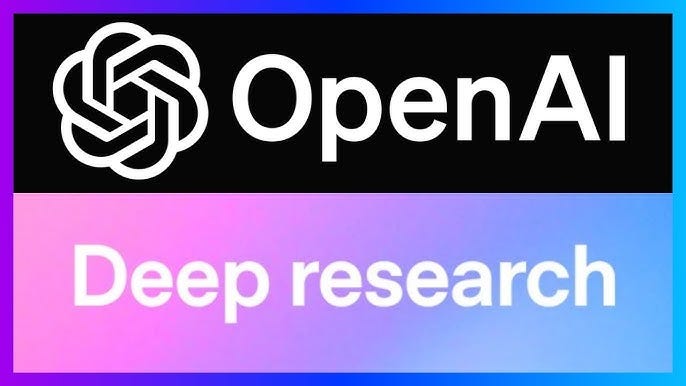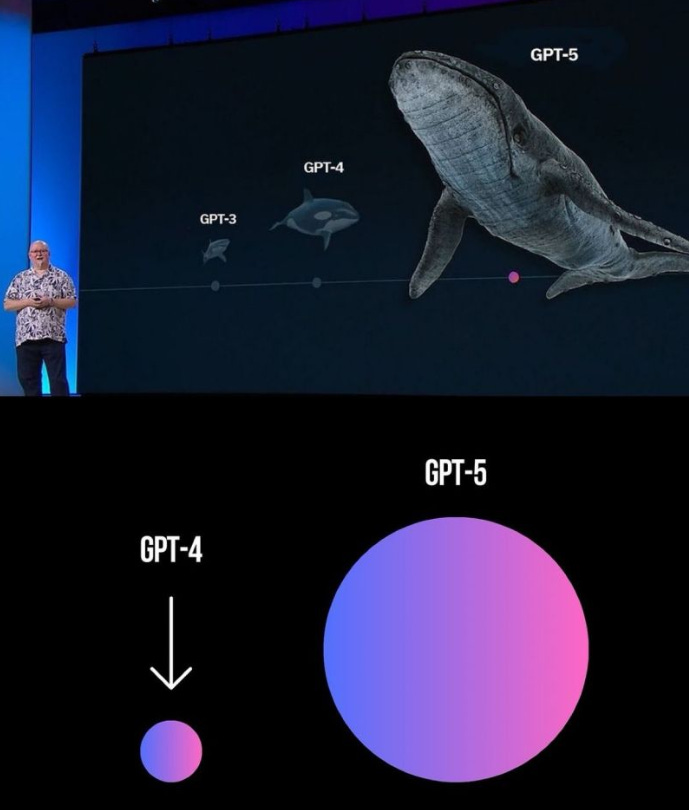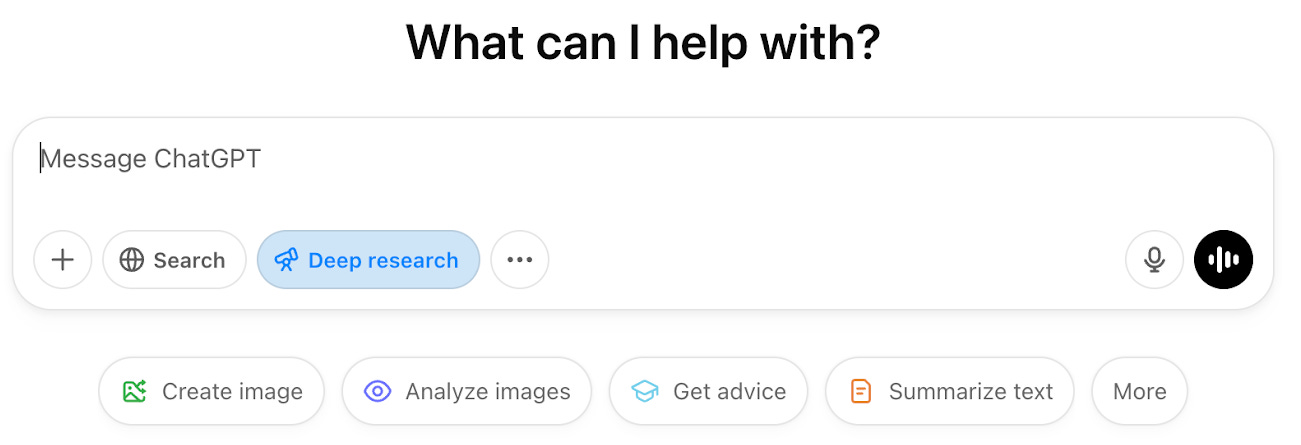Gemini vs ChatGPT Deep Research destroyed my expectations
A complete video walkthrough + real-world insights from testing both tools.
Good Morning,
If you value guides on AI, please see my new section at the top of my Newsletter website. On the right side margin of the web view, I also have a trending works section highlighting articles that have done well. As we’re waiting for the next splash of new models, there’s a lot of noise about reasoning models and their agents.
Today’s guide will be by Alex McFarland comparing Deep Research of OpenAI and with that of Google.
How should we think of Deep Research, I mean really? We’ve been waiting so long for OpenAI’s GPT-5, it feels like we’ve been cheated somehow. 🤷🏻♂️
The contrast between “feel the AGI” and “still no whale” is beginning to widen in 2025. We are likely months away from GPT-5 and a unified model for OpenAI.
Disclosure, I don’t think Grok 3 is the answer.
Deep Research is supposed to be the start of an AI agent era of utility, but is it? Google Gemini’s version of Deep Research is notably faster in conducting research, often completing tasks within 5-15 minutes. In contrast, OpenAI's Deep Research can take anywhere from 5 to 30 minutes to finish similar tasks.
Since DeepSeek R1 I’ve been wondering at OpenAI’s product timeline. And no sooner had I analyze it that OpenAI mentioned they will make their Deep Research model available to users on ChatGPT’s free tier soon, according to an X post by CEO Sam Altman, yesterday on February 12th.
Now Grok 3 by xAI also has its own Deep Search. But is Deep Search more Deep Research or more Perplexity for X? xAI's Deep Search is a new tool introduced as part of the Grok 3 AI model announced recently, which serves as a next-generation search engine. Note also that the xAI Super Grok subscription is a premium tier offering designed to provide users with early access to the latest advancements in AI technology, including the Grok 3 model.
DeepSearch by xAI (or Research) is an agentic feature, which means it deputes the AI chatbot to act more like an assistant for searching, sorting, and compiling all the information you need in the form of a comprehensive report, complete with citations. Full disclosure, I mostly use the free tier of Genspark that also has its own agent.
Consensus so far is that OpenAI’s spin on “Deep Research” is the best in class.
Is this really a Generational Tool or just part of the future of Search that we will soon take for granted?
“OpenAI’s Deep Research has largely been accepted as a super valuable tool for knowledge workers and analysts across the economy, but its real engine of economic progress is going to be changing the nature of scientific progress….Deep Research in its current form feels like a beta version of a next-generation piece of technology.” - Nathan Lambert, Interconnects.
As Google brings their version of Deep Research to their app on mobile, OpenAI is suddenly downgrading it from Pro to all users.
Meanwhile, I’m seeing a lot of noise about OpenAI’s version of it. Personally I liked the virality of DeepSeek, I’m less enamored with Deep Research clones. You might have noticed that Tencent has integrated DeepSeek with its search on WeChat and Baidu has integrated it with advanced Search with ERNIE. Agentic AI is not a mature ecosystem with scalable frameworks or much consolidation yet. But the application layer innovation is starting to take place a bit more rapidly so far in 2025.
Note: During the time this draft was in the queue, even Perplexity announced its own hallcinating prone version of Deep Research. But let’s try to understand it deeper.
Are Reasoning Models Changing the Future of Science?
So is this changing the future of science like Nathan Lambert suggests, or another Meta Galactica like Gary Marcus suggests?
Pragmatic as I am, I turn to my trusty guide maker Alex McFarland of AI Disruptor Newsletter. He’s been looking into copyright and testing OpenAI’s Deep Research especially lately.
Is this a promising intern or a moment in the evolution of so-called reasoning models? If usually sane people like Nathan are this bullish, am I missing something? Apparently I’m missing a lot.
But let’s get to the point already. When to use Google Gemini’s version vs. OpenAI’s version? Keep in mind that OpenAI’s deep research is supposed to be better, it primarily utilizes a specialized version of their upcoming "o3" model.
Deep Research utilizes the OpenAI o3 model to perform intricate research tasks across various domains, producing results comparable to human analysts in a fraction of the time.
Read the FAQ. We should really mention that both You.com and genspark have had agents like this for quite some time, though obviously not as sophisticated.
We’re supposed to get GPT-4.5 in weeks, but we got access to GPT-4 in March, 2023 - nearly two full years ago. 🕭 Many bells and whistles later, we got another tool supposed to keep us busy in an onslaught of agents from every direction.
The WSJ recently interviewed OpenAI’s VP of Engineering, Srinivas Narayanan, where he tried to validate OpenAI’s need for so much compute like Stargate and scaling laws. Credit to the Journal’s Belle Lin.
The Role of Compute in Advanced AI Intelligence
So let’s get into our guide:
What follows is a 19-min video guide
Article comparing OpenAI’s Deep Research step by stepy with that of Google’s.
OpenAI vs. Google DeepMind comparison - “Deep Research destroyed my expectations”
🦜 From Rio de Janeiro, Brazil - Alex is one of my favorite AI tool guide makers.








